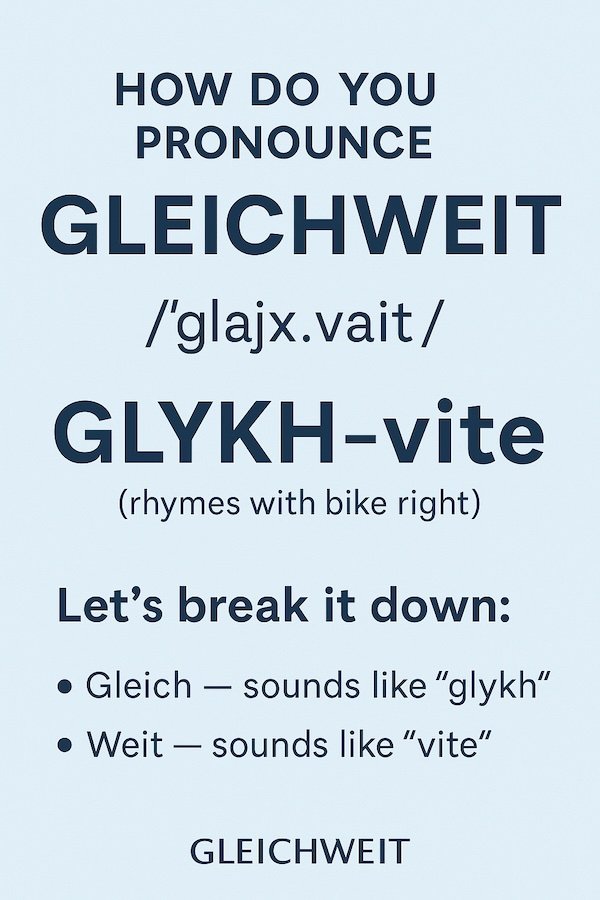If you’ve discovered Gleichweit mouthpieces recently, you might be wondering:
How do you pronounce “Gleichweit”?
You’re not alone — this Austrian name has sparked many creative attempts!
But here’s the correct pronunciation:
🎧 “Gleichweit” = /ˈɡlaɪ̯x.vaɪ̯t/
Think: GLYKH-vite (rhymes with bike right)
— or —
If you speak German: Gleich (like “glykh”) + weit (like “vite”)
Let’s break it down:
-
Gleich — sounds like “glykh” (the “ch” is a soft, back-of-the-throat sound — not “sh” or “k”)
-
Weit — sounds like “vite”, as in “flight” without the “fl”
If you’re still unsure, imagine saying:
“bike-light” but with a slightly harsher “kh” in the middle:
→ Glykh-vite
A Name That Means Something
In German, gleich can mean “same” or “equal,” and weit means “wide” or “far.” While not a literal brand slogan, the name reflects a philosophy: creating a consistently great sound that carries — wide and far — through precision and balance.
Meet the Maker Behind the Name
Johannes Gleichweit began crafting mouthpieces over 25 years ago in Austria. What started as a personal search for better sound and fit has become a global brand trusted by professionals, students, and educators alike.
His name is on every mouthpiece — and now you know how to say it.
Now that you can pronounce it, why not play it?
Explore Gleichweit mouthpieces at MyClarinetStuff.com
Built for clarity. Priced for accessibility. Designed to last.


